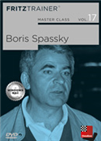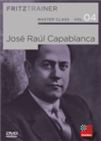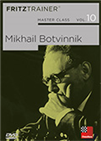By Herbert Bastian & Frank Hoffmeister
The Chess History and Literature Society
On Friday 13 September 2024, the CH&LS held its annual meeting in Budapest in parallel to the 45th Chess Olympiad. Upon invitation of the Hungarian Chess Federation, roughly 20 members and guests convened at the historic premises of host. Members that could not make it to the Hungarian Capital in person, could follow the deliberations online.
Established in 1921, the Hungarian Chess Federation also became a founding member of the Word Chess Federation (FIDE) in 1924. The marvellous meetings rooms paid tribute to the long tradition in various ways. Next to an impressive number of trophies gained in international tournaments, the Federation is also equipped by 30 wooden tournament tables, in which already the former Socialist Prime Minister, Kadar, used to play when he trolled over to Falk Utca 10, not far away from the marvellous Parliament building.
The Secretary General, IM Ivan Sipos, opened the conference with a welcome speech. Paying tribute to the 100-year jubilee of FIDE, the CH&LS focussed its deliberations on the role of FIDE for international chess.

Jean-Olivier LECONTE and Frank HOFFMEISTER prepare the technology
 In this video course, experts including Dorian Rogozenco, Mihail Marin, Karsten Müller and Oliver Reeh, examine the games of Boris Spassky. Let them show you which openings Spassky chose to play, where his strength in middlegames were and much more.
In this video course, experts including Dorian Rogozenco, Mihail Marin, Karsten Müller and Oliver Reeh, examine the games of Boris Spassky. Let them show you which openings Spassky chose to play, where his strength in middlegames were and much more.In the first lecture, Dominique THIMOGNIER, who runs the highly recommended website Héritage des échecs français, reported on the creation of FIDE in 1924 with many new insights. He revealed that, on the one hand, famous players (such as Lasker) and officials (such as the Secretary-General of the British Chess Federation) had already supported the idea to establish a world chess federation before the first World War. On the other hand, the act of establishment at the margins of the 1924 Paris Olympiad was also the result of a spontaneous action of those, who were present at the end of the team championships. Some delegates appear to have acted without a clear mandate from their federation, and some federations (such as the Spanish Federation) had not even been founded yet. The question discussed at the conference as to whether the Finnish participant was present at the founding meeting or was added later still seems unresolved. It should also be noted that the long-simmering controversy between a players' association or a federation of nations was decided in favour of the second option, which was particularly favoured by England.
In the following presentation, the Swede Matthias JOHANSSON reported very interesting details on the pre-war Olympiads with a special focus on Stockholm 1937. He showed that the amateur character of the tournament was abolished when the United Kingdom accepted to allow professional players as participants. Generally speaking, Hungary dominated the competition with victories from 1926-1928 while the United States conquered three consecutive titles from 1931-1935. In 1936, Nazi Germany organised a team competition in Munich, which was not recognised as a FIDE Olympiad. However, FIDE had allowed its members to participate voluntarily since the German Federation had suspended the Aryan paragraph (which excluded Jewish players in Germany) for the tournament. In 2022, a photo book by Ferenc CHALUPETZKY, who was part of the Hungarian delegation in the Munich 1936 Chess Olympiad was published in Hungary. The Hungarian chess historian László JAKOBETZ turned this valuable testimony into a beautiful book, which was published on the occasion of the 2024 Olympiad. Among other things, it shows the friendly relations between the Hungarians and the Greater German Chess Federation. Hungary won the tournament despite the enormous efforts of the National Socialists, who would have liked to win the gold medal and for this reason had the tournament played on eight boards. Two years later, the Greater German Chess Federation was accepted into FIDE.

Cover page of the photo book with hand-embroidered Olympic rings
After the coffee break, the Secretary-General of the Society, the Dane Claes LOFGREN presented a letter from NIMZOWITSCH to the editor of a Danish Chess Journal. In a previous edition, NIMZOWITSCH had criticised a debatable move from a game played between two fellow Danes. When the President of the chess club, whose players had come under fire, protested against the remarks, he went so far as suggesting that the editor of the journal should exercise some scrutiny. This, in turn, triggered the grandmaster to warn against any sort of censorship in chess journals in typically Nimzo-writing style.
The first day programme ended with the Board's reports on FIDE's activities, projects and finances. The Society to support its To-Biblion Project with more funding and to open it to chess researchers upon request. Moreover, it envisages to improve the exchanges between members by offering a voluntary Whatts-Up Group.
President Frank HOFFMEISTER had prepared a surprise for the evening. We met for a dinner together in the medieval-style Sir Lancelot restaurant. The stylish meal with dance performances, fire-eater and sword fight made us feel as if we had been transported back in time, which was great fun.

In front of the entrance to Sir Lancelot

The CH&LS Round Table

Ein Feuerschlucker besucht die CH & LS
The packed Saturday began with a guided tour of the city, accompanied by László JAKOBETZ. The author of a recent biography (in English) showed the birth house of Géza Maróczy, the great Hungarian master, who was close to challenging Lasker before the first world war. The group was particularly impressed by a visit to the neighbouring graves of the Hungarian chess heroes Resző CHAROUSEK, Géza MARÓCZY, Gyula BREYER and Gédéon BARCZA. Moreover, Jakobetz showed as the tournament hall of the Hungarian Trade Union, where such famous tournaments as the 1950 Candidates were played.
 He was a child prodigy and he is surrounded by legends. In his best times he was considered to be unbeatable and by many he was reckoned to be the greatest chess talent of all time: Jose Raul Capablanca, born 1888 in Havana.
He was a child prodigy and he is surrounded by legends. In his best times he was considered to be unbeatable and by many he was reckoned to be the greatest chess talent of all time: Jose Raul Capablanca, born 1888 in Havana. 
The grave of Géza Maróczy
This was followed by an interesting lecture by Prof. Frank HOFFMEISTER on the three accessions of the German Chess Federation to FIDE: as “Deutscher Schachbund”, delayed in 1926 after the foundation of FIDE because of the First World War, a second time in 1938 as the Greater German Chess Federation whose automatic succession to the DSB was contested in FIDE because of the Aryan Paragraph, and a third time in 1950 with two federations (one in West-Germany after hesitant denazification and one in East-Germany after Soviet take-over).
The second part of the presentation was the admission of the Soviet Union, which only took place in 1947. Hoffmeister showed that the driving motivation was to establish the regime-loyal Botvinnik as world champion. This may also explain that the “Winterthur 6” (i.e. Botvinnik, Smyslov, Keres, Reshevsky, Fine and Euwe, who had been nominated by the FIDE congress) agreed in September 1946 not to play in Prague, where Najdorf won. Despite the earlier agreement that the winner of the Prague agreement would have the right to participate in the next world championship match, the FIDE congress in The Hague in summer 1947 decided otherwise. This decision also paved the way to Soviet accession at the very congress and the promise to hold the championship in 1948 in The Hague and Moscow. As Botvinnik won the tournament in due course, the plan was very successful and constituted the start of Soviet domination of the World Chess Federation. Stefan LÖFFLER added to the topic from an Austrian perspective, underlining the need of the Austrian Federation to accommodate both American and Soviet presence in the country until 1955.
Further highlights were provided by the eyewitness accounts of Willi ICKLICKI and Adrian MICHALTSCHISCHIN from the CAMPOMANES era, in particular the infamous cancellation of the World Championship fight between KARPOV and KASPAROV in 1984.
FM Jürgen BRUSTKERN concluded the programme with a presentation of his well-researched book about the chess tournaments in Hastings, full of anecdotes and interesting games.
And then it was on to a visit to the Chess Olympiad, where the group met many familiar faces, as was to be expected. It is very impressive when you look down from the gallery of a huge hall at over 1500 chess athletes, and you can imagine the enormous organisational effort required to keep everything running smoothly. In Hungary, they have it under control.
Willi ICKLICKI is responsible for a fantastic exhibition of contemporary documents such as official posters and medals from the Chess Olympiads. There was also a large selection of game sets on display, reflecting the transformation of the game pieces over the centuries

A poster from a bygone era

Collection of official FIDE coins
 Our experts show, using the games of Botvinnik, how to employ specific openings successfully, which model strategies are present in specific structures, how to find tactical solutions and rules for how to bring endings to a successful conclusion
Our experts show, using the games of Botvinnik, how to employ specific openings successfully, which model strategies are present in specific structures, how to find tactical solutions and rules for how to bring endings to a successful conclusion
An Indian chaturanga set with typical markings on the board
The next stop was the private Budapest Chess Museum, which is run by Andras SCHENKER and his mother as an inheritance from her late husband. Pastries and drinks were served during the extremely friendly tour. The museum assembles the life-long collection about Hungarian chess, with journals, boards and other memorabilia. Highlights were the “opening cards” of Judit Polgar, well before the computer age and the complete collection of Maroczy publications. Schenker also graciously offered to all members of the society to make use of the catalogue in case of special interest (a number of books are doubled and can also be sold).

Chess, a sport for everyone!
As if that wasn't enough, in the evening the rest of the group went to Café Fem, where Stefan LÖFFLER and an Indian comedian offered a lively chess cabaret with ad-hoc stunts

Willy Icklicki is interviewed at the cabaret
To summarise, the annual meeting proved to be a great event. It not only deepened the shared knowledge of FIDE chess history and interaction with renowned chess historians from several European nations, but also provided unique insights into the marvellous chess tradition of Hungary. It is obvious that chess occupies an important place in Hungarian society, which was evident in the historical rooms of the Chess Federation, where one could admire the high esteem of chess masters and the outstanding successes of Hungarian players in individual and team competitions.
Webseite of the Chess History and Literature Society...
























